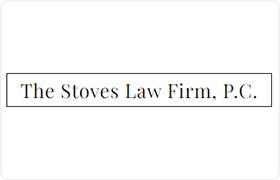Saginaw RICO Act Lawyer, Alabama
Sponsored Law Firm
-
 x
x

Click For More Info:
-
The Stoves Law Firm, P.C.
9 Office Park Cir Suite 105 Birmingham, AL 35223» view mapCriminal Defense Legal Expertise You Can Rely On
The Stoves Law Firm, P.C. provides outstanding Criminal Defense and Litigation services to individuals and businesses throughout the State of Alabama.
800-818-9390
Not enough matches for Saginaw RICO Act lawyer.
Below are all Saginaw Criminal lawyers.
Christopher Rhett Smitherman
✓ VERIFIED *Status is reviewed annually. For latest information visit hereCriminal, Estate, Divorce & Family Law, Accident & Injury, Personal Injury
John Martin Eades
Immigration, Divorce & Family Law, Criminal, Bankruptcy & Debt
Status: In Good Standing *Status is reviewed annually. For latest information visit here Licensed: 26 Years
Allen M Shabani
Divorce & Family Law, Criminal, Accident & Injury, Litigation
Status: In Good Standing *Status is reviewed annually. For latest information visit here Licensed: 15 Years
Jeffrey Bryan Pino
Estate, Personal Injury, Litigation, Criminal, Family Law
Status: In Good Standing *Status is reviewed annually. For latest information visit here Licensed: 18 Years
Justin Neal Smitherman
Real Estate, Criminal, Bankruptcy & Debt, Accident & Injury
Status: In Good Standing *Status is reviewed annually. For latest information visit here Licensed: 13 Years
Jill T. Karle
Traffic, Workers' Compensation, Family Law, Criminal
Status: In Good Standing *Status is reviewed annually. For latest information visit here Licensed: 33 Years
Douglas L. Key
Adoption, Alimony & Spousal Support, Animal Bite, Criminal
Status: In Good Standing *Status is reviewed annually. For latest information visit here Licensed: 51 Years
Harry Emmanuel Scozzaro
Estate, Divorce & Family Law, Criminal, Accident & Injury
Status: In Good Standing *Status is reviewed annually. For latest information visit here Licensed: 22 Years
Michael Carl Shores
Criminal
Status: In Good Standing *Status is reviewed annually. For latest information visit here Licensed: 37 Years
Foster D. Key
Alimony & Spousal Support, Adoption, Criminal, Animal Bite
Status: In Good Standing *Status is reviewed annually. For latest information visit here Licensed: 31 Years
 Jay Stoves Birmingham, AL
Jay Stoves Birmingham, AL Practice AreasExpertise
Practice AreasExpertise
